WWDC: Lion, the Switch, and the Boredom
WWDC ’11 is in the can, and its message is clear: You want iOS on everything. No really. You do.
But here’s a little spoiler, Apple: No, I don’t.
The Lion
It started promising enough, with inevitable revisions to Launchpad (which has both been around for a while, and also brand new today, somehow.) Launchpad, the Icon-loving layer behind OSX and Lion, now conveniently opens up with a swipe or a tap, and allows you to download apps straight to your desktop, just like yo do now to your iPad or iPhone. Neat? Sure. Except that, it seems like every time you want to use an app in Launch Pad, you have to switch back to Launchpad. Take Twitter, for example. (And by the 7 gods, old and new, you will.) Twitter was shown of, a little too giddily, by Phil Schiller, all giggly and excited that the app just flies out of the store and into your dock in Launch Pad, where it lives forevermore. Meaning, it seems, that Twitter, which up until now has always been easily accessable in any number of free ways on your desktop, now forces yo to stop whatever it is you’re working on so you can switch back to launchpad and respond to your notification. Irritating, to say the least.
Another app featured, AirDrop, was irritating in a different way, in that it’s basically file sharing for the Luddites. See the way AirDrop works is, when your MacBook Pro comes within range of your iMac, it will show up in the sidebar of your finder as a shared folder. Then you can drag and drop to your heart’s content. Just consider it another revolutionary product from Apple that’s been around for, oh, let’s say, decades. But granted, it was never this pretty.
It’s not all pedantic hand-holding and key-dangling-shiny bits. Obviously, Lion is a full-featured release of OSX that will have the same interface as all previous versions; there will be full installable software packages from 3rd parties, FaceTime is built-in (but Skype is still available for those of us who want to call our non-mac-owning friends), and most importantly, Mail is getting a very very VERY overdue update. But the path to the future seems clear: iOS will be coming faster and more prevelantly to all future versions of Apple’s desktop OS. And since they’re charging just $29 for it, it will become insanely popular, very quickly.
The Switch
Like Android, but y’know…hate android? I hear ya. For the longest time Android has been doing so many things right, it’s a shame that they’ve been doing everything else wrong. Take notifications and widgets, for example. The system they have in place (at least with SenseUI) is superb, and social integration baked into your contact list is second only to Windows Phone…or at least, it would be, if the two weren’t practically identical. But iOS has always been on the outside looking in, forcing users to deal with annoying pop-ups and open dedicated applications to respond to every little message you get. Finally, iOS 5 brings not only a completely redesigned (read: usable) notification system, but also widgets, that you can access from your lockscreen or by pulling down from the top of any screen. They’ve also baked Twitter integration into the OS, which is great…but not as great as doing the same with Facebook.
Quick rant here…honestly, what the eff is the holdout with iOS and Facebook? Again, Android, and indeed Windows Phone, has proved that deep Facebook integration is not only doable, it’s super-cool and extremely handy. Alas, maybe iOS 6 will bring that to the Apple user’s pocket, or maybe Facebook will give us a new app that handles that. But as of today, it’s an unrequited dream.
Safari got updated to 2006 as well with the inclusion of tabs in the browser, at least on the iPad. There’s also a reminders app built in to the OS, which is, again, the prettiest version of a free service ever. Best of all, the Camera app got an update, and users can now, FINALLY, use the volume button to snap a pic. Lockscreen integration is also part of the update. Extremely handy, to say the least.
The best news however has absolutely got to be Apple making good on its promise of life in a Post-PC world, with the announcement of wireless syncing. This is inarguably the most important oversight in the iOS universe; the ability to activate and update a device without the need to tether to iTunes. Now anyone can purchase an iOS device whether or not they own a computer; any computer. This is a crucial update, and while it’s not necessarily overdue, it is definitely late to the game. As is often said of Apple updates, “it’s about damn time.”
And then there’s iMessage. iMessage is neither overdue, nor crucial; it’s straight-up competitive, and in an extremely good way. iMessage is Apples answer to BBM (and by “answer”, I mean “Potential death blow”). iMessage is an integrated messaging app that works over WiFi and 3G, on every iOs portable device. That means the iPhone, the iPad, and the iPod Touch. Cross-platform functionality is the only thing missing here; being able to chat for free with my Android-or-WinPhone-lovin’-buddies would be the shiv in BBM’s back; but while that feature is lacking, it is iOS-device agnostic. Not even the Playbook can boast such a claim…though to be fair, there are more than a few claims the Playbook can’t boast.
This may well be the most competitive update to iOS yet, and the most compelling reason for users to drop Blackberry for good. Especially with OTA updates and iMessage, the reasons not to switch to an apple device just got significantly fewer.
The Boredom
Aaaahhh, iCloud. I have pretty high hopes, and low expectations, for iCloud; MobileMe was such a clusterfrak, and everyone knows it. When it was MobileMe, no one used it. It never worked. It cost too much. It was an additional, and wholly unnecessary, layer to your daily computing life. It, in a word, sucked.
iCloud is another one of those Apple oversight apps that seems so obvious, you wonder why they didn’t get it right the first time. Indeed, it appears Apple’s efforts to improve the system were more of a personal mission to make up for the MobileMe failure than they were one to improve the state of personal mobile computing. And improve it, they did.
iCloud integration now appears to be baked in to every core app that ships with an iOS device. You make a calendar update on your iPhone and it pushes it to your iPad. You make an app purchase on your iPad, the cloud can push it to your phone. Mark a page in a book on your iPod, and it’ll be there when you fire up your iPad. There’s even iWork integration, so you can keep working on the same Pages document on any device, wherever you are. Best of all, iTunes works in the cloud; no more syncing music content. It’s all seamless, and slick, and…expected. This is not revolutionary, or even particularly exciting…it’s simply what the system should always have been, and a worthy apology for the Mobile Me failure.
There is one potential for failure in iCloud, however, and that’s that it is far too limited in its offerings as a storage and streaming device. iTunes is the best example; when you purchase a song in iTunes, it downloads the song to all your devices, rather than staying in the cloud. That takes time and uses space, which is a part of the problem, but the greater question is, what about all the music I have that I didn’t buy from iTunes? How do I get that from my iTunes at home onto my iPad on the beach in Miami? Well it appears Apple’s thought of that too: by charging you for the privilege. If you have content on your HDD that’s been ripped from a CD, iTunes will scan that content and find a match in the iTunes store and download THAT song to your device. It’s an add-on service to the otherwise free iCloud, which effectively says “you own this song, but didn’t buy it from us. If you want to hear it, either put it on yourself, or buy it from us again.” This seems unfair to me, and a clear-cut reason to keep using the absolutely excellent Audiogalaxy app, which streams your music directly from your computer to your device. Without downloading it. For FREE.
The Feedback
I have mixed feelings about today’s WWDC keynote. The growth of iOS in Lion scares me a little bit; I don’t want the meaning of “The Computer for the Rest Of Us” to simply refer to the luddites. The iOS updates for portables is generally exceptional, but as always, a couple of things were left out that left me scratching my head and wondering “huh?” And iCloud is…well…iCloud; a potentially great feature, but nothing new…just new for Apple. (Though PhotoStream is pretty great; a built-in feature that automatically ports all pix taken on your iPhone to your iPad. THAT, my friend, is handy.) It vexes me no end that I have to wait until the fall to get my hands on iOS 5, but I’ve got a strong feeling that’s because by then there will be a fancy new gadget on which to enjoy, and indeed exploit, all its new features. But it is as all Apple events are: Filled with hyperbole and solf-congratulation, at the base of which is invariably a couple of really cool things, and a lot of fluff.
iOS 5 (and all that other stuff I guess) will be available this Fall. Yes. Fall. Ugh.

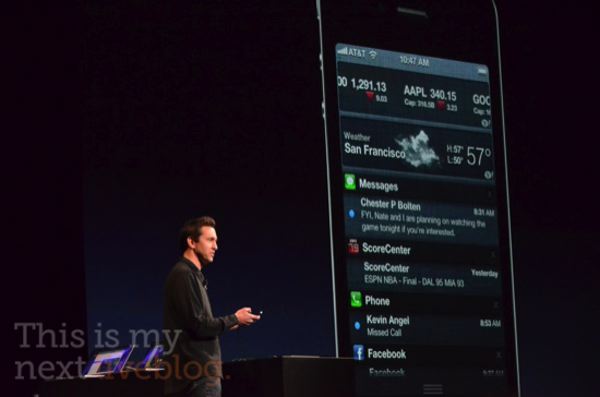
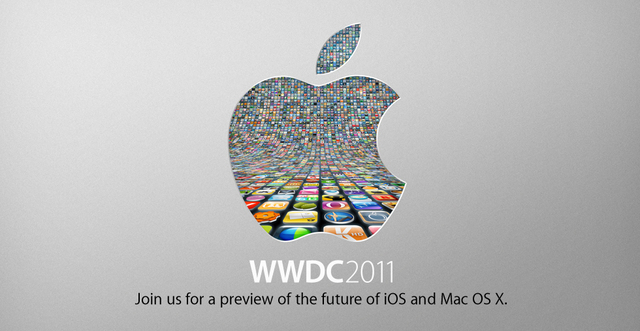
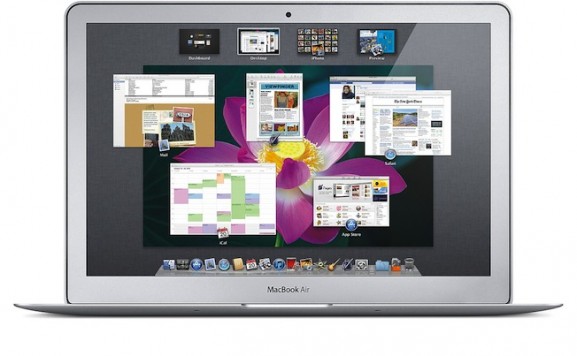
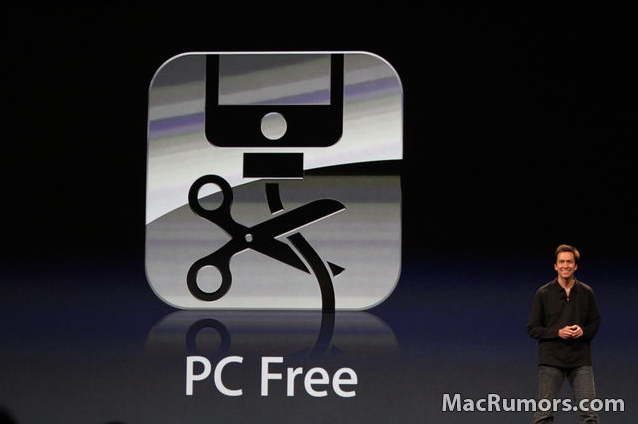
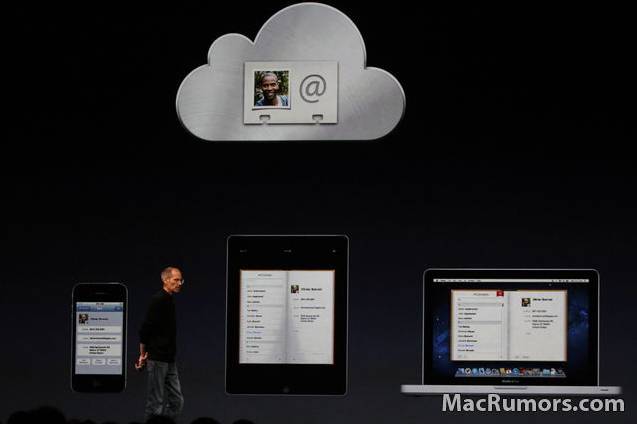
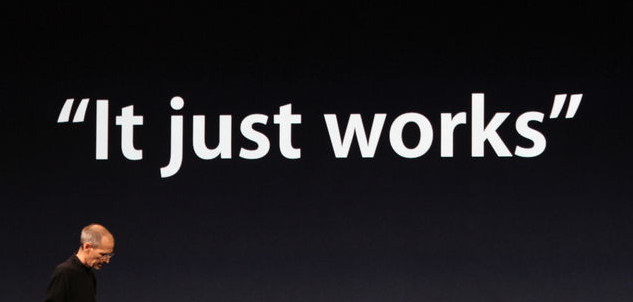



Detail-rich article, thanks. I found the Ars Technica piece pretty light on deets. For some reason, ubergeeks don’t have the enthusiasm they once did for poring over every aspect of Apple’s plans. I didn’t realise for example that there are two iClouds, the free one and the monthly subscription one. And the difference is that with the paid one you get to use your own music on the service that you didn’t purchase from iTunes. So it’s like they are charging you for access to your own already purchased music on this service that is otherwise free; that’s an important development. However, it was a mistake to use the words ‘supercool’ and ‘Facebook’ in such close proximity to each other. 8)